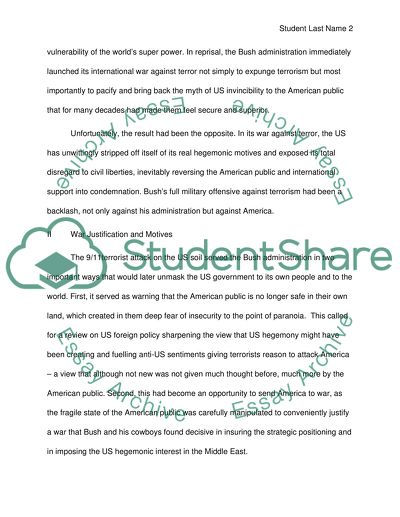Cite this document
(“The American people in the US-Led Afghanistan and Iraq War Essay”, n.d.)
Retrieved from https://studentshare.org/history/1393781-the-american-people-in-the-us-led-afghanistan-and-iraq-war
Retrieved from https://studentshare.org/history/1393781-the-american-people-in-the-us-led-afghanistan-and-iraq-war
(The American People in the US-Led Afghanistan and Iraq War Essay)
https://studentshare.org/history/1393781-the-american-people-in-the-us-led-afghanistan-and-iraq-war.
https://studentshare.org/history/1393781-the-american-people-in-the-us-led-afghanistan-and-iraq-war.
“The American People in the US-Led Afghanistan and Iraq War Essay”, n.d. https://studentshare.org/history/1393781-the-american-people-in-the-us-led-afghanistan-and-iraq-war.


